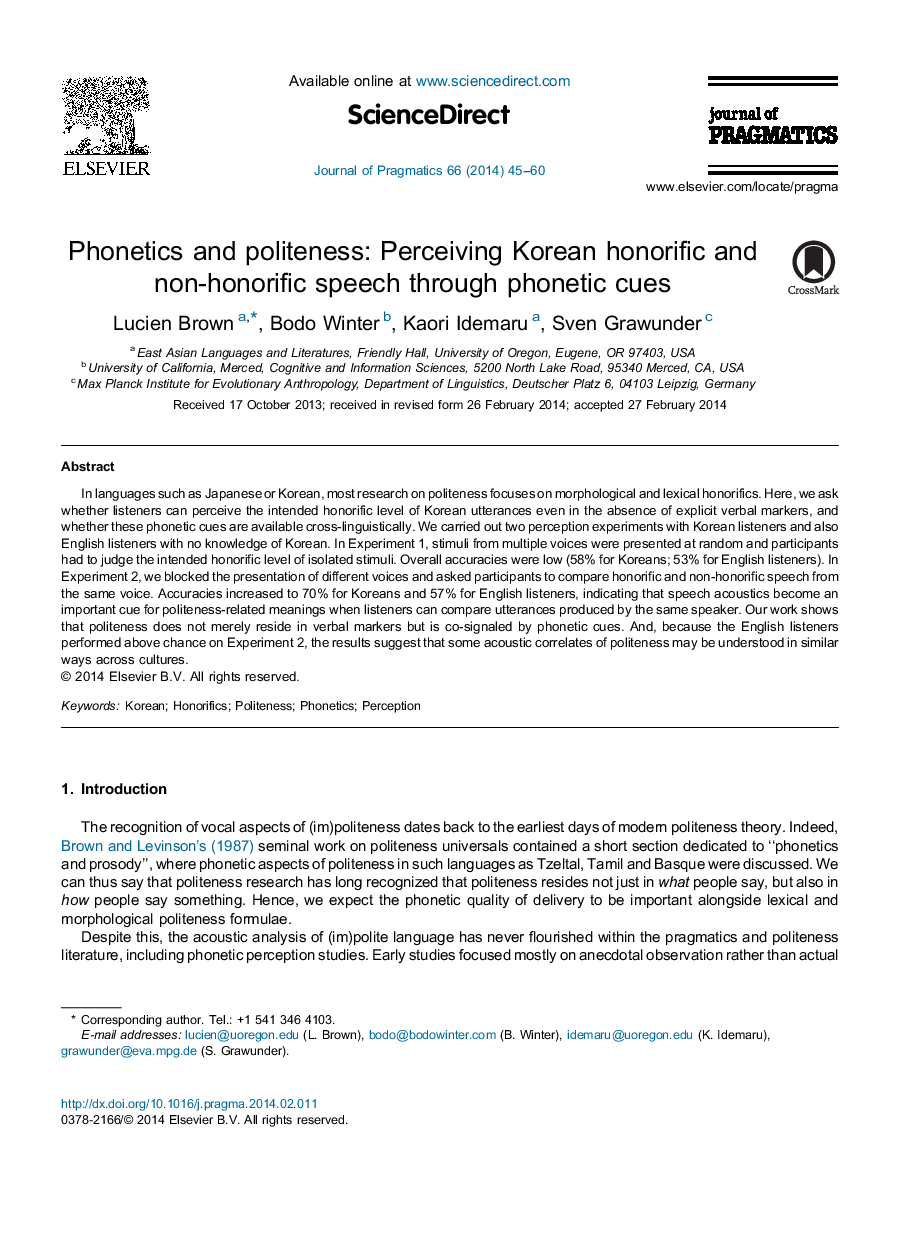| کد مقاله | کد نشریه | سال انتشار | مقاله انگلیسی | نسخه تمام متن |
|---|---|---|---|---|
| 932743 | 1474734 | 2014 | 16 صفحه PDF | دانلود رایگان |
• Korean and English listeners can perceive Korean honorific levels from phonetic cues.
• Korean listeners performed with significantly higher accuracy than English listeners.
• When stimuli from multiple voices were presented at random, accuracies were low.
• Accuracies increased when listeners could compare two stimuli from the same speaker.
• We conclude that phonetic cues for politeness exist alongside verbal cues.
In languages such as Japanese or Korean, most research on politeness focuses on morphological and lexical honorifics. Here, we ask whether listeners can perceive the intended honorific level of Korean utterances even in the absence of explicit verbal markers, and whether these phonetic cues are available cross-linguistically. We carried out two perception experiments with Korean listeners and also English listeners with no knowledge of Korean. In Experiment 1, stimuli from multiple voices were presented at random and participants had to judge the intended honorific level of isolated stimuli. Overall accuracies were low (58% for Koreans; 53% for English listeners). In Experiment 2, we blocked the presentation of different voices and asked participants to compare honorific and non-honorific speech from the same voice. Accuracies increased to 70% for Koreans and 57% for English listeners, indicating that speech acoustics become an important cue for politeness-related meanings when listeners can compare utterances produced by the same speaker. Our work shows that politeness does not merely reside in verbal markers but is co-signaled by phonetic cues. And, because the English listeners performed above chance on Experiment 2, the results suggest that some acoustic correlates of politeness may be understood in similar ways across cultures.
Journal: Journal of Pragmatics - Volume 66, May 2014, Pages 45–60
